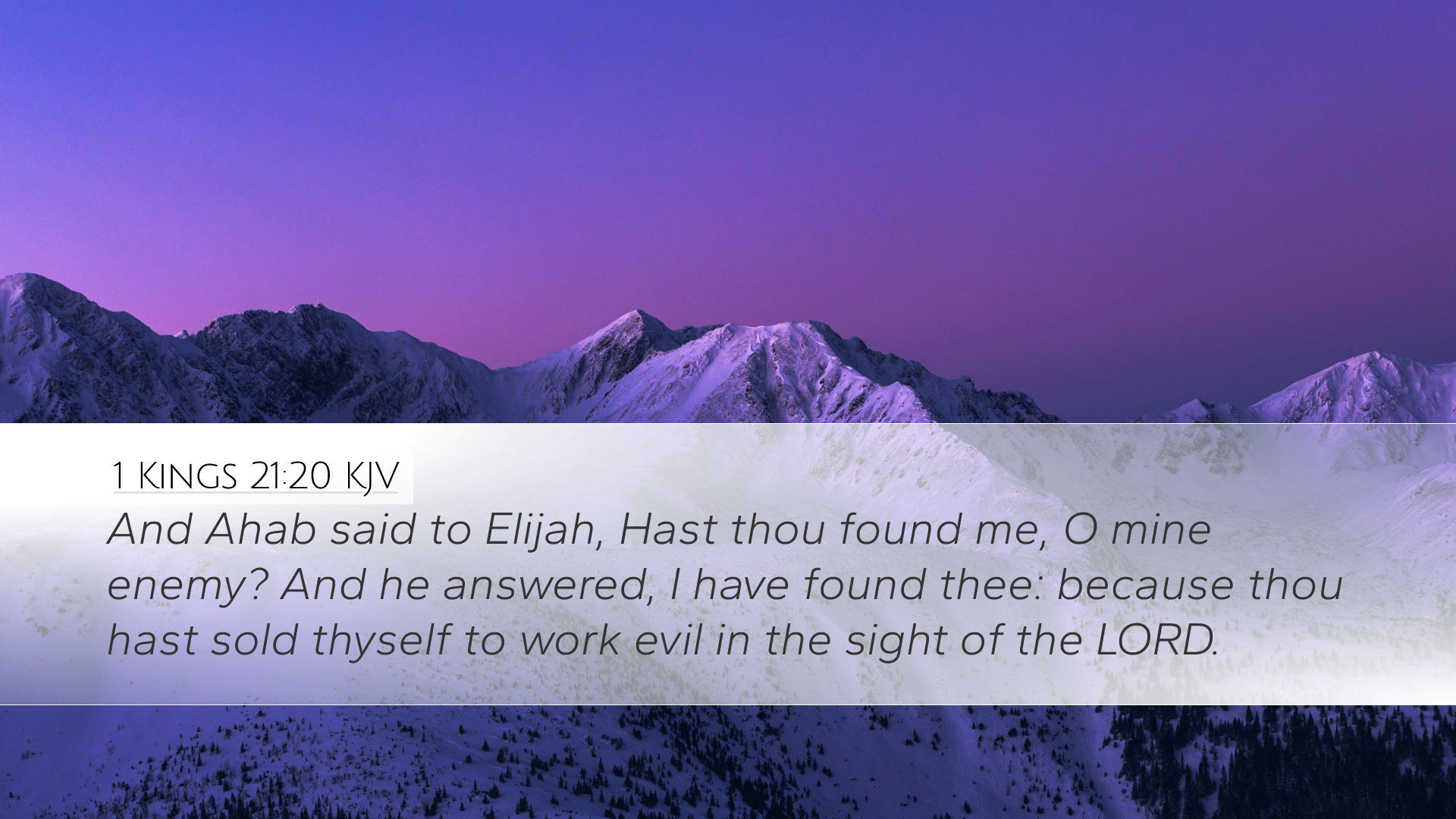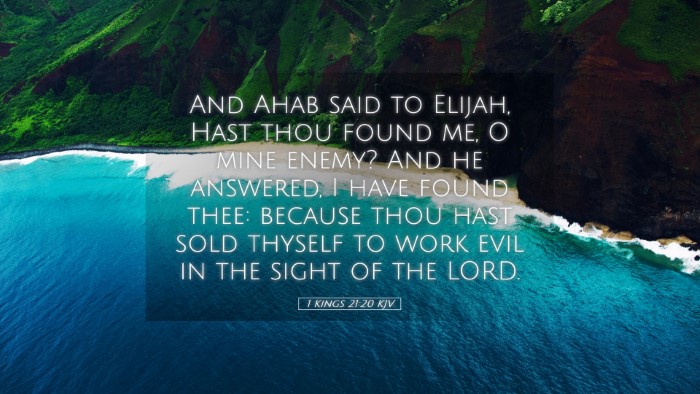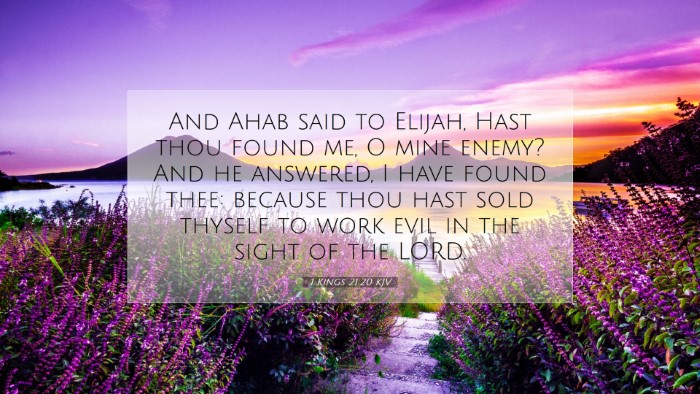Bible Commentary on 1 Kings 21:20
Verse Text: “And Ahab said to Elijah, ‘Have you found me, O my enemy?’ And he answered, ‘I have found you because you have sold yourself to do evil in the sight of the Lord.’” (1 Kings 21:20, NKJV)
Introduction
This verse occurs in a dramatic encounter between the prophet Elijah and King Ahab of Israel—one of the most notorious kings in biblical history. The context surrounding this interaction highlights profound themes: the conflict between righteousness and wickedness, the prophetic voice in the face of tyranny, and the consequences of idolatry and moral failure.
Contextual Background
The backdrop to this passage is crucial to understanding its implications. Ahab's reign is marked by moral decline, primarily due to his marriage to Jezebel and the introduction of Baal worship into Israel. The event leading to this confrontation involves Naboth's vineyard, where Ahab, longing for the vineyard, attempts to acquire it through manipulation and, ultimately, murder—the epitome of his moral depravity.
Character Analysis
- Ahab: As king, Ahab embodies the consequences of abandoning God's laws. His question to Elijah reveals a duality; he perceives the prophet as an enemy, despite being the messenger of divine truth.
- Elijah: The prophet stands firm as the bearer of God's judgment. His willingness to confront Ahab signifies a profound commitment to his calling, reflecting the role of prophets in challenging societal corruption.
Thematic Insights
The Conflict of Good and Evil
The confrontation encapsulates the broader biblical theme of good versus evil. Elijah's role signifies God's perspective on human actions, while Ahab's response underscores the defensive posturing of those entrenched in sin. Matthew Henry articulately notes this struggle, emphasizing that the prophet must confront the powerful, irrespective of their status.
The Nature of Sin
Elijah identifies Ahab as one who “sold himself to do evil.” This phrase suggests that Ahab's choices were not mere lapses in judgment but a conscious betrayal of his covenant with God. Adam Clarke expands on this, pointing out that such selling oneself indicates a complete surrender to moral corruption—an important reminder that sin often requires active participation, complicity, and personal choice.
Judgment and Accountability
The verse highlights the concept of divine judgment. God is depicted as intimately aware of human actions, illustrating that no one evades accountability. Albert Barnes emphasizes this notion by noting that God's judgment through the prophet is an extension of His justice, revealing that even kings are subject to divine scrutiny.
Application for Today's Believers
This passage challenges contemporary readers to reflect on their own complicity in moral failures, be it through personal choices or broader societal complacencies. Ahab serves as an archetype of the pitfalls one may encounter when forsaking divine commandments for personal gain.
Self-Examination
The dialogue invites self-examination: Are we aware of our spiritual state? Are we inclined to view those who call us to righteousness as adversaries? Like Ahab, can we recognize the prophetic voices in our lives as conduits of God’s truth rather than enemies? This calls for humility and openness to correction.
Prophetic Voice in Modern Context
In today's society, where moral ambivalence often reigns, the role of the prophet—those called to speak truth to power—remains vital. This passage reminds us that maintaining integrity may come at a cost, paralleling Elijah's experience. The church today is invited to stand boldly against injustice, carrying forth the messages of accountability and righteousness.
Conclusion
1 Kings 21:20 serves as a poignant reminder of the stark consequences that arise when individuals turn away from God’s path. For pastors, students, and scholars alike, this verse compels a deeper understanding of our relationship with the divine, the importance of accountability, and the courage required to uphold truth in our lives and communities.
This commentary, drawing from the insights of Matthew Henry, Albert Barnes, and Adam Clarke, seeks to illuminate the complexities of this interaction, evoking meaningful reflection and prompting actionable responses in the pursuit of faithfulness to God’s call.


